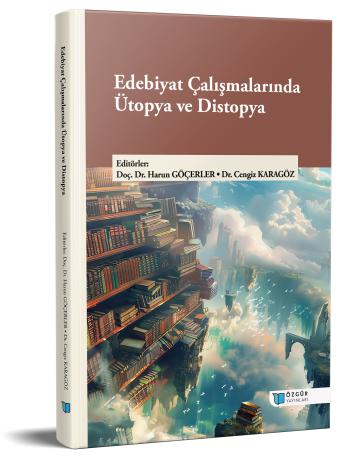
Dystopic Themes in Modern Turkish Novel: Space, Memory and Control
Chapter from the book:
Göçerler,
H.
&
Karagöz,
C.
(eds.)
2025.
Utopia and Dystopia in Literary Studies.
Synopsis
This study examines the representation of dystopian themes in contemporary Turkish novels through the interrelated concepts of space, memory, and control. Building on the tradition of modern dystopian literature, the analysis focuses on how utopian ideals collapse into authoritarian structures and oppressive systems. Within this framework, four novels are explored: Gökdelen by Tahsin Yücel, Çöplüğün Generali by Oya Baydar, and Tutsak Güneş and Yarın Yok by Ayşe Kulin. These works construct dystopian worlds shaped by neoliberal urbanization, the systematic erasure of collective memory, ideological manipulation through media, and ecological collapse. The study employs theoretical perspectives from Michel Foucault’s concept of the panopticon, Maurice Halbwachs’ theory of collective memory, Louis Althusser’s notion of ideological state apparatuses, and eco-critical approaches to highlight the mechanisms of surveillance, forgetting, and ecological destruction in these narratives. The findings indicate that these novels not only mirror global dystopian traditions—such as those exemplified by Zamyatin, Orwell, Huxley, and Bradbury—but also contextualize them within Turkish socio-political and cultural realities after 1980. Ultimately, the analysis shows that dystopian narratives in modern Turkish literature go beyond depicting catastrophic futures; they serve as critical texts that expose the fragility of ideological promises, challenge authoritarian structures, and call attention to the urgent need for memory, ecological awareness, and individual resistance.

